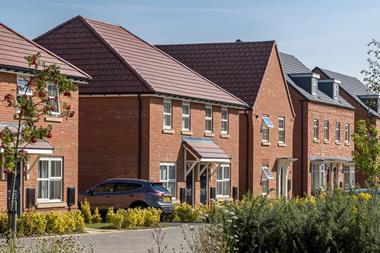GERMANY – The Bundesbank has warned that residential property prices are rising faster than justifiable in parts of Germany's urban housing market, giving voice to concerns long expressed by small parts of the industry.
According to an article in its October monthly report, prices in certain urban areas – such as Berlin, Hamburg, Cologne and Düsseldorf – have risen by more than one-quarter since 2010, leading to the central bank noting this could "give rise to fears of a broad-based property price boom".
The concerns come after the Hamburgische WeltWirtschaftsinstitut warned that "speculative exaggerations" were emerging in limited parts of the market.
The 18-page paper says residential prices have increased by more than 8% since 2010, but that some urban areas have seen price increases up to 10% above levels predicted by the Bundesbank model.
The research stresses that the findings are "fraught with a considerable degree of uncertainty", despite accepting that the increased prices will not remain contained to urban areas.
However, it adds: "The empirical evidence points toward a German residential market, as a whole, not yet seeing a substantial overvaluation."
It also says the price level is unlikely to have macroeconomic consequences.
"The observable price changes are an expression of the delayed expansion of supply," it says.
"The volume of real estate credit extended to private households since 2010 has only moderately increased, and the banks have continued the industry's tendency to employ stricter awarding criteria."
Andreas Mattner, president of German real estate association ZIA, categorically denied any suggestion of a bubble.
He said there was no such risk in either the residential or commercial real estate markets.
"A few top destinations in particularly sought-after areas, such as Berlin, Hamburg or Munich, have seen considerable price increases," he said. "But these isolated [instances] do not pose a risk to financial stability."
The Bundesbank also warned against any market intervention through capping of rental increases, as this would deter investors from committing the capital required to construct multi-family units.
Marcus Cieleback of Patrizia agreed with the central bank's sentiment that the price rise was due to constrained demand following decades of insufficient construction.
"Rents are pushed up because there are too few apartments in the cities," he told IP Real Estate.
He warned against any attempt by the government to intervene in the rental market.
"If you now limit rent increases, prices and rent go out of line with each other," he said.
"But it's not because prices are increasing too much, it's just because rents cannot catch up to what they actually should be, given the demand side.
"Then you give rise to a bubble, at least from the fundamental valuation point of view, by the price-to-rent ratio.
"It then might look like you have a bubble there, but it's only because rents are regulated."
Cieleback said this appeared to be one of the reasons the Bundesbank was opposed to rent caps.
"The risk in the market is very much on the regulatory side," he said.












